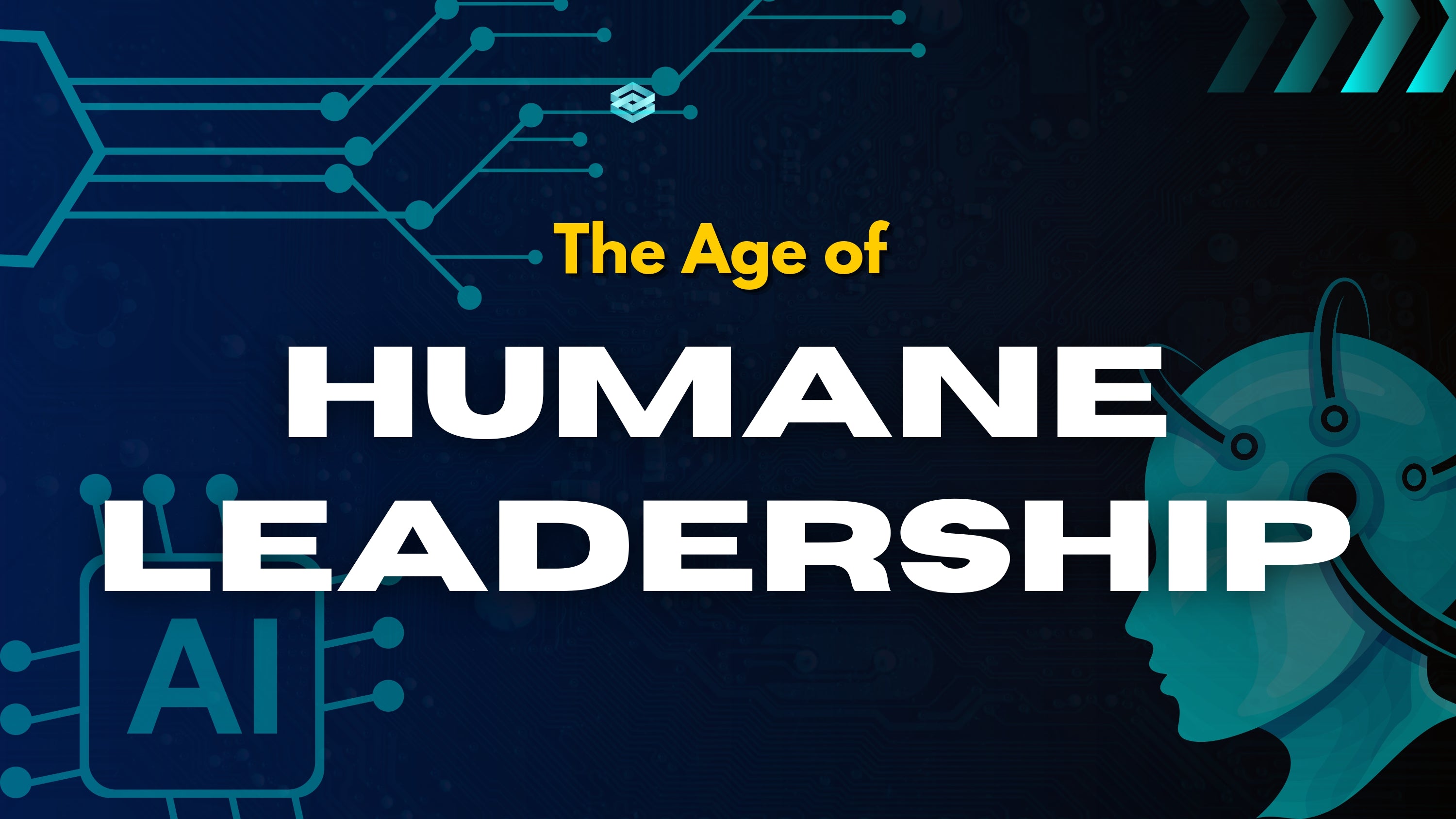
The Age of Humane Leadership

“Winners don’t do different things. They do things differently.”
This famous quote is appropriate for successful leadership, too, especially in the age of AI! ‘What’ the landscape and narrative of the space needs the leaders to do is generally the same: Build products and features, help the customers achieve their goals while having the best experience, groom and grow their team, and move the business and technology needles, but ‘how’ they lead and do these things differentiates the best leaders from the rest.
Traditionally, most leaders strive to be reliable and steady for their organization. They rely on the tried and tested rinse-repeat formula for success, or at least, they build on their experience and context for deciding how they should operate in the future. Doing something ‘different’ from the pattern is usually considered a risk, and not many want to go that way. In general, this approach is effective and preferred, but it may not be suitable for an era marked by flux, such as the advent of AI.

Artificial Intelligence or AI, has snuck up on the world in a rapid and transformative manner. We can deduce this by looking at the changed narratives and vocabulary of even the most non-technical and everyday people around us. Everyone seems to know something about AI and has found ways to use AI in our lives, while some others have seen AI impact their job or work in a positive or negative way. Most of us have also seen that their favorite product, service, food, show, or platform has started using and flaunting AI.
Perception and possibility-wise, AI will take up a large proportion of all the roles in all the different domains of life, which previously were strictly limited to human acumen. From mundane tasks, such as planning a trip to the magical, such as creating art, AI is sailing through rapidly to be able to do a good job with these things that were considered sacred and limited to the most evolved of humans. In other scenarios, AI is able to produce near-similar or sometimes better outcomes in less time than what a human at their peak would produce, such as writing an analysis on a topic or preparing a presentation, etc.

In the field of software engineering, which relies a lot on the learning curve and context, AI has quickly proved that by design, it is an ideal replacement, if not, a very powerful tool. Be it writing a new code, refactoring or enhancing an existing code, tracing the flow of the code or building the big picture view of what the code is doing, AI-assisted functionality is now almost a standard with most development environments.
As a result, a large part of the skillset that traditionally made someone a sought-after strong software engineer is no longer a requirement to succeed in the role. Once considered one of the most lucrative and sought-after profiles, has now almost become a commodity given the capabilities that AI brings to do the job. This has resulted in the need for an overhaul of skills as well as expectations from the people playing that role. An entirely different set of skills needs to be learnt and mastered by the people in this role to leverage the advancements in AI and to make the organizations compete and succeed in this era.

The world of managers is at an interesting and important juncture, too. On the one hand, who they lead is changing, while on the other hand, how they should lead in this unprecedented new landscape also needs to evolve. The expectation of the managers and leaders is to use AI to the fullest to maximize productivity and efficiency of their teams while accelerating speed and volume of delivery. There is a kind of race to color everything with AI, which can even be theoretically possible. To top it all, it is increasingly becoming harder to measure the impact and success of making these changes, given that it is not apparently demonstrable.
Leadership is considered synonymous with experience. However, how does one lead their team in the AI world when one themselves has not had the runway to build expertise? In fact, many of one’s team members would have similar or even higher exposure to AI than they do, given we all started roughly at the same starting point in the AI evolution. This balancing act is clearly not easy or something that has a shortcut to glory. Many managers are finding themselves in a tough spot, not knowing where to start, and most might be wondering how they can stay relevant and succeed in this tsunami of AI!

Approaching this potentially chaotic and challenging assignment from a fresh perspective is the need of the hour. We believe that one needs to build new skills as well as embrace new ways of thinking to navigate through this ordeal. In the wave of artificial intelligence, the leaders whose teams thrive and succeed are those who lead in the most ‘organic’ way and leverage the ‘human’ aspects to their fullest. Are you curious to learn how?
Our book ‘Managing Teams in the Age of AI’ tries to dissect this by peeling the layers of the space, role, and success criteria of managers. It attempts to put the various dimensions of leadership in the AI context, such as people, technology, execution, storytelling, planning, innovation, and, of course, learning. It provides frameworks, strategies, and food for thought on how to approach those. We also take this opportunity to come up with a reusable blueprint to become a leader for all seasons for the long run and ride such unprecedented and disruptive waves like AI even in the future!
Written by Ankur Agrawal




Leave a comment
This site is protected by hCaptcha and the hCaptcha Privacy Policy and Terms of Service apply.